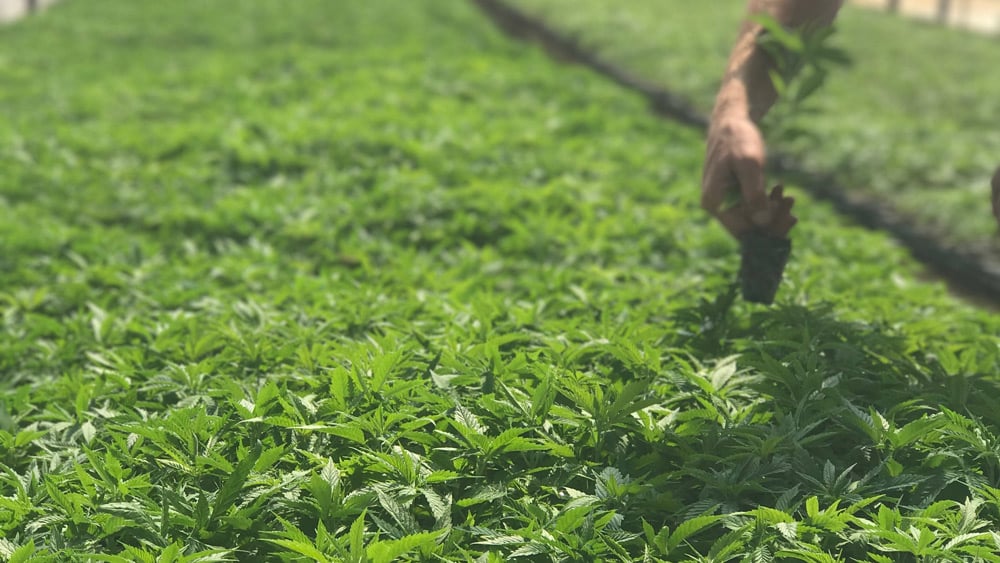
Though hemp is a product that has been used by human beings for industrial purposes for thousands of years, the past decade in the United States has witnessed a significant number of changes. The development of new attitudes, laws, and general understanding of the hemp industry has enabled a wide variety of businesses to take advantage of this new frontier. In fact, according to the National Conference of State Legislatures, at least 35 states have already passed legislation related to industrial hemp and many more states are currently considering it.
On a national scale, the future of the hemp industry is undoubtedly bright. One of the most active states leading the charge has been the Great State of Colorado. Since over 1.3 million Coloradans voted to pass Amendment 64 in 2012, a lot has changed about the state’s approach to industrial hemp farming. Whether you are a consumer, producer, or simply curious, here are some things to know about the effects of this vote on the hemp industry in the Centennial State:
1. What is the legal status of hemp farming in Colorado?
On November 6th, 2012, Colorado (along with Washington State) became the first legislative district in the world to pass a popular initiative allowing the legal cultivation of both recreational marijuana and industrial hemp products. However, though Colorado is recognized for the work it has done in both the marijuana and hemp industries, it is important to recognize that these products are distinctively different. Marijuana contains high levels of tetrahydrocannabinol (THC) and is distinctively recognized for its psychoactive effects. Hemp, which can still be used for various consumption purposes, has lower levels of THC and is generally less regulated.
The amendment to the State Constitution that successfully legalized these varieties of products—Amendment 64—has placed the burdens of interpretation and definition upon the Colorado General Assembly in Denver. The General Assembly has defined hemp as the part of the marijuana plant that has less than 0.3% THC content “on a dry weight basis”, and the production of industrial hemp is fully legal in Colorado (along with 12 other states). Because of the relative recentness of its legalization, the regulation of industrial hemp production is still a bit greater than it is for other industrial agriculture products.
2. What is the Industrial Hemp Farming Act of 2015?
The Industrial Hemp Farming Act is not a statewide, but a national piece of legislation that proposes that industrial hemp—which can be used for the production of clothes, non-psychotic foods, rope, paper, and numerous other things—be fully legalized in the United States. This particular act has received bipartisan support from both hemp-friendly Democrats and industry-friendly Republicans in congress, and though it initially died in committee in 2014, it has since been reintroduced into debate in both the Senate and the House of Representatives.
3. What is the difference between hemp and marijuana?
Hemp and marijuana are both products of the same plant family, but the difference between the two is the activeness of tetrahydrocannabinol (THC) present in their usage. While marijuana—also known as pot, grass, the devil’s lettuce, and a variety of other names—is a colloquial reference to the part of the plant that is naturally rich in THC (the stuff that gets you high), hemp is the part of the plant that has significantly less THC (0.3% and below), and instead is used primarily for industrial purposes such as those mentioned above.
4. How could I become a hemp farmer in Colorado?
Becoming a hemp farmer in the great State of Colorado is relatively easy, though the work you will have to put in cultivating this product (which naturally prefers a wetter, warmer climate) is far from simple. But to get started, you will have to fill out an application with the Colorado Department of Agriculture, though this is something you will have to do for the production of any industrial crop and is not a process unique to hemp. Furthermore, in addition to the registration fee, you will need to pay an additional fee of $5/acre you intend to cultivate. The Colorado Department of Agriculture is the department responsible for establishing all of the rules and regulations for industrial (but not medical nor recreational) hemp production, and if you are interested in starting your own farm or working for another, you should begin by visiting their website.
5. What is the size of the hemp industry in Colorado?
The Colorado hemp industry is—pun intended—growing faster than a weed. According to the most recently completed set of information available, Colorado farmers planted about 2,000 acres of industrial hemp in 2015, which is roughly ten times as much as they did in 2014. In 2016, the industry continued to grow with similar vigor, though the exact data demonstrating such growth is not yet available. Still, this multi-million dollar industry is demonstrating the value of using hemp as an industrial cash crop, and because—even without subsidization—hemp produces a greater yield per acre than many of the crops being cultivated in the status quo, this growth can be expected to continue well into the foreseeable future.
Blue Forest Farms is an industrial hemp farm that offers flower, genetics and extraction services. Partner with the best. For more information on our High CBD Hemp Seeds, flower or extraction services, call direct at (303) 962-8250.



